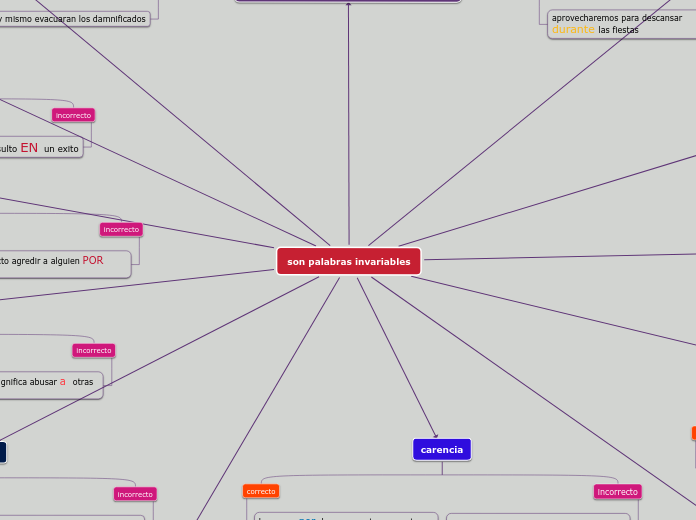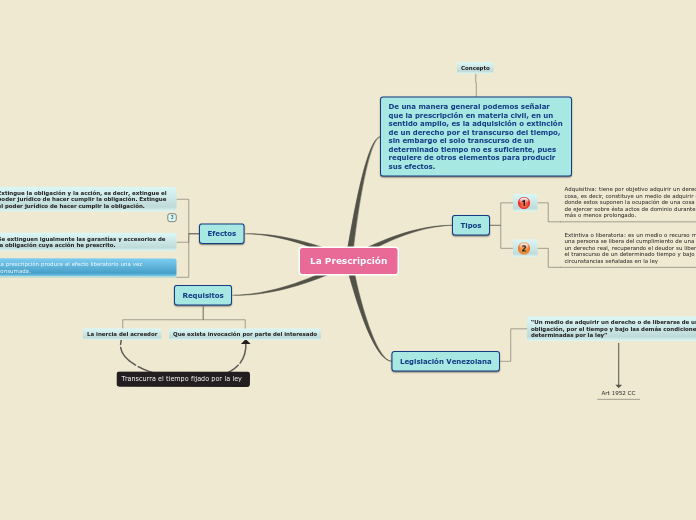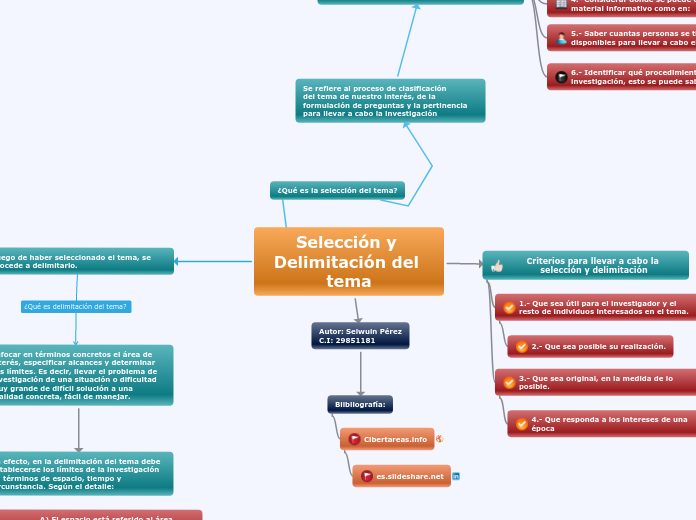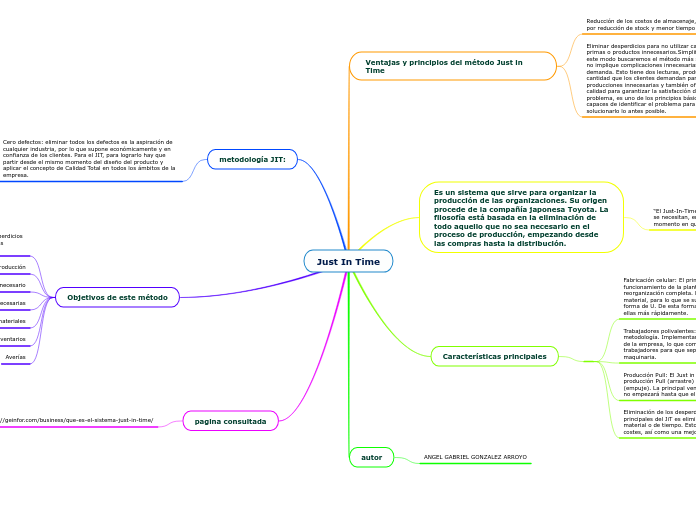son palabras invariables
Name the character
Type in the name of the character whose change throughout the story you are going to analyze.
Example: Nick Carraway.
modo
imprimo fotografias de colores llamativos
imprimo fotografias en colores llamativos
carencia
los pasos a dar en nuestro proyecto son decisivos
los pasos por dar en nuestro proyecto son decisivos
fundamentacion
en base de mis conocimientos hare mi tarea
sobre la base de mis conocimientos hare mi tarea
omisión
hoy mismo evacuaran los damnificados
hoy mismo evacuaran a los damnificados
direccion
se realizo una colecta en beneficio de las victimas del huracan
se realizo una colecta a beneficio de las victimas del huracan
tiempo
aprovecharemos para descansar por las fiestas
aprovecharemos para descansar durante las fiestas
finalidad
se va por siempre de su pueblo
se va para siempre de su pueblo
lugar
me situe a la cola para recibir mi nuevo documento de identidad
me situe en la cola para recibir mi nuevo documento de identidad
ubicacion
rita prohibio a su hijo salir en la casa
rita prohibio a su hijo salir de la casa
paciente
la violencia fisica significa abusar a otras personas
la violencia fisica significa abusar de otras personas
casual
no es correcto agredir a alguien POR palabras
nos es correcto agredir a alguien CON palabras
inserción
Character's feelings
Focus on the way the character's feelings are presented at the beginning and at the end of the story, while explaining why they have changed.
incorrecto
la reunion resulto EN un exito
Change of feelings
In what way did the character change the feeling you mentioned?
Type in a quote to support your statement.
Example: 'They are a rotten crowd. You're worth the whole damn bunch put together.' - Nick criticizing the Buchanans.
correcto
la reunion resulto un exito
Initial feelings
How does the character feel about a certain subject at the beginning of the story? Type in a relevant quote to support your statement.
Example: "Reserving judgements is a matter of infinite hope."
El uso de las preposiciones
Title
Type in the title and author of the literary work that introduces the character.
Example: The Great Gatsby, by F. Scott Fitzgerald.









